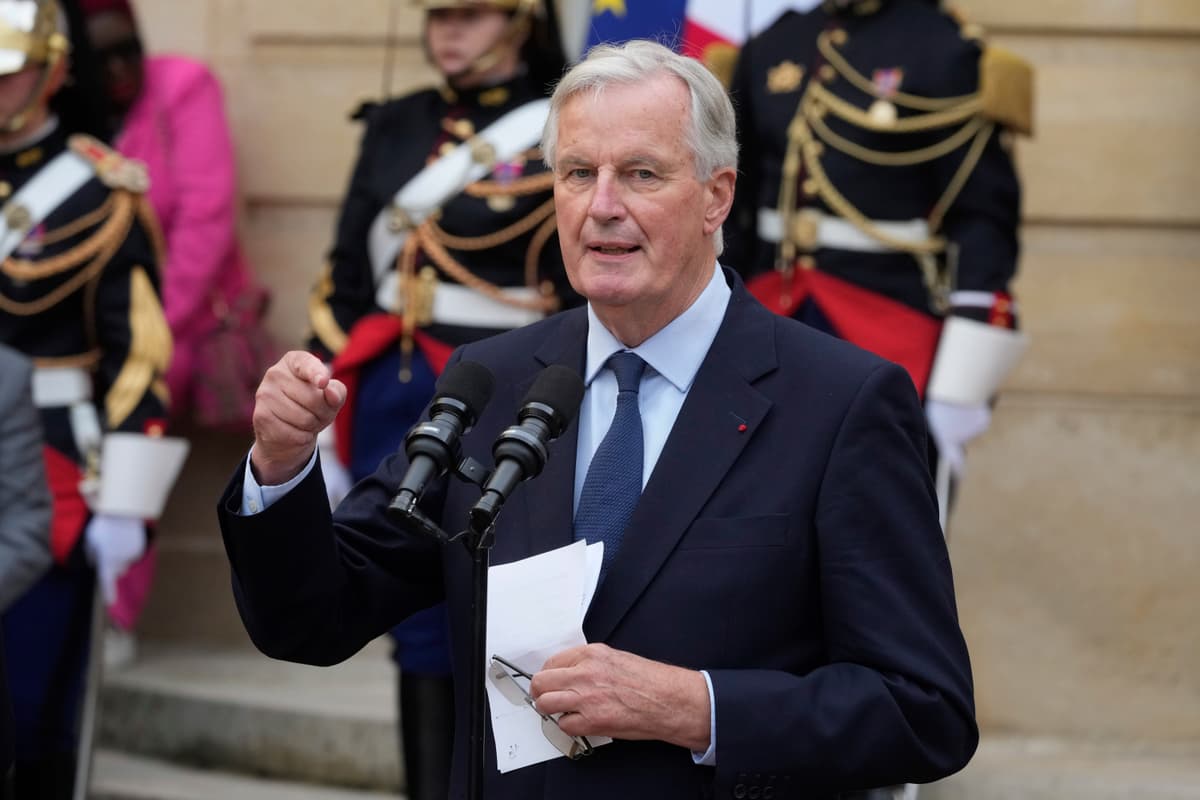New French Government, Gripped by Paralysis, Already Shows Signs of Collapsing
A no-confidence motion looms as Macron’s hubris and miscalculations are likely to get worse before they get better.

Paris is seething, and it’s not because the scent of Kentucky Fried Chicken is upsetting the natives. It is because the new government formed by the recently appointed prime minister, Michel Barnier, is already looking as flimsy as fromage, and the blame game is centering squarely on President Macron.
True, after a lengthy summer pause with only a caretaker government to steer the Fifth Republic, an actual cabinet meeting took place on Monday at the Élysée Palace. No matter: as Mr. Macron is well aware, and to the dismay of the left, the National Rally is the party now quietly calling the shots.
The right-of-center, or what some insist on calling the far right, has not occupied that catbird seat since World War II. That is why earlier this week Le Monde, a newspaper generally supportive of les Macronistes, declared that the government could be toppled at any moment.
Not just yet — the scent of fresh elections is already in the air, however. On October 1, Mr. Barnier will deliver his general policy speech in front of the Assemblée nationale. That is when the 143 National Rally deputies and their allies might propose a motion of no confidence in the government.
If supported by representatives of the left-wing New Popular Front coalition, the motion will have the votes to pass. If left and right at first seem like strange bedfellows, remember, this is France. The far left, led by France Unbowed, resents that Mr. Macron’s actions seemed to flout the left’s electoral gains.
France Unbowed has already moved to impeach the president. Meanwhile, Mr. Barnier eventually formed a government that left out the left. By reappointing seven outgoing members of an already incapacitated government, the battle lines over things like passing a national budget were drawn early.
The old Macronistes and seasoned politicians, Monsieur Barnier included, mostly tilt to the right. They might not tilt far enough, though, at least for some. On Monday an influential National Rally deputy, Jean-Philippe Tanguy, reminded France Inter that “we are the ones who will decide if this government has a future.”
Will Marine Le Pen, who leads the National Rally in parliament, pounce so soon? According to the French constitution, new legislative elections cannot be held before July 2025. October, though, portends fresh intrigue. If Mr. Barnier’s wobbly government, say, were to fall, it could trigger Mr. Macron’s resignation.
There was an early warning sign that might happen earlier this month when a former prime minister under Mr. Macron, Édouard Philippe, announced his candidacy for the presidential race. That is more than two years away, but a clearing of the lanes may already be under way.
At the same time, the National Rally is already making inroads on government policies on hot-button issues like immigration — even while lashing out at Mr. Macron at every opportunity. Like Germany, France is thumbing its nose at Brussels with markedly fewer reservations than in the past.
The new interior minister, Bruno Retailleau — described by Le Monde as “a representative of the Catholic and conservative right” — told TF1 television on Monday that EU laws are not fit for purpose and are no longer suited to the “migration disorders” that are plaguing France and the EU bloc.
“It is time we change EU rules,” he said, adding, “We can create a sort of alliance with other member states that want to be more firm on immigration.”
While such anti-EU rhetoric is music to the ears of Madame Le Pen, it is also somewhat scripted. Mr. Retailleau’s appointment was widely seen as Mr. Macron’s wink to the National Rally for supporting, or at least not instantly trying to demolish, Mr. Barnier’s new government.
At issue, or soon to be, is the EU’s pact on migration and asylum that was adopted in May. It is meant to help member states share the burden of illegal immigration and external border controls with first-entry countries through, among other things, a “solidarity” mechanism and pre-screening checks of refugees before they enter the EU.
However, countries like Hungary and Germany, which recently reimposed physical checks at land borders, are increasingly taking matters into their own hands. What all this means for President Macron is not yet clear. However, his popularity is in freefall and he has kept a lower profile than normal over the past several weeks.
The president has also stated more than once that he won’t resign — but to paraphrase a line of Stephen Sondheim’s, the French were raised to be charming, not sincere.

